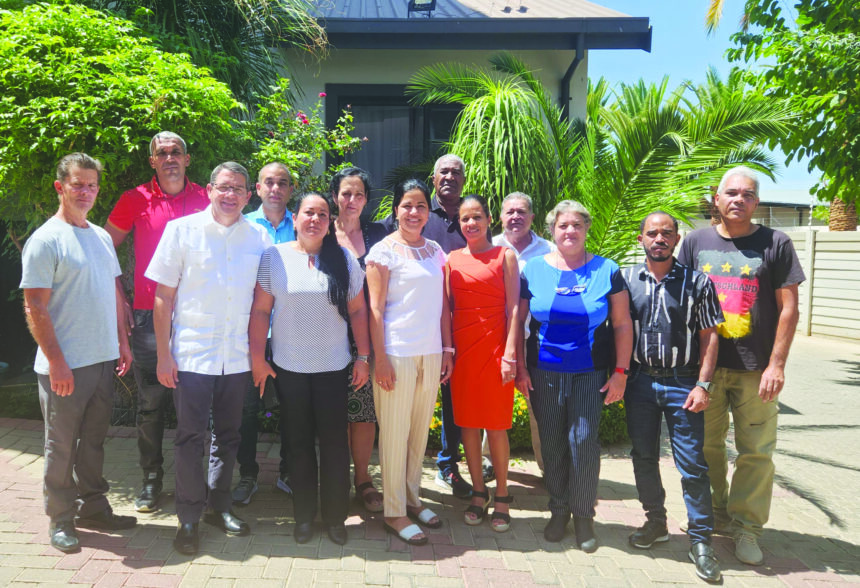Maggy Thomas
Eight Cuban doctors arrived in Namibia late last year, increasing the total number of Cuban medical specialists in the country to 98.
Their arrival is aimed at alleviating the shortage of medical staff in Namibia, particularly in underserved areas.
The new specialists have expertise in various fields, including internal medicine, neurosurgery, intensive care, paediatrics, orthopaedics, psychiatry, gynaecology, neonatology, plastic surgery, forensic medicine, stomatology, electromedicine, pharmacy, anaesthesia, urology, radiology and maxillofacial surgery.
“This is part of the fulfilment of an agreement between the two governments signed in 2015,” Cuban ambassador Sergio Vigoa de la Luz told Nampa in an interview on Monday. He noted that the doctors have been assigned to hospitals in Katima Mulilo, Keetmanshoop, Oshakati and Engela as well as at the Katutura Intermediate Hospital.
“We welcome these new Cuban collaborators, who will contribute to improving health and well-being in Namibia’s remote regions,” the ambassador said.
While the current agreement was signed in 2015, the presence of Cuban doctors in Namibia dates back to 1991.
Since Namibia’s independence, about 2 000 Cuban specialists have provided healthcare services in the country.
Beyond healthcare, Cuban expertise extends to fishing, agriculture, sports, education, mining and construction.
“Currently, 120 Cuban specialists are serving Namibia across various sectors of society and the economy,” Vigoa said.
More than 100 Namibian doctors also graduated from Cuban universities last year.
They currently serve in Namibian State hospitals countrywide. Despite decades of economic blockade, Cuba has maintained a robust healthcare system. This includes the successful maternal and child health programme, which significantly reduced the infant mortality rate of 7.1 per thousand live births in children under one in 33 municipalities in the country.
Cuba also boasts a comprehensive vaccination programme, offering 17 vaccines, 12 of which are produced domestically.
The ambassador emphasised Cuba’s commitment to the partnership with Namibia, expressing hope that the collaboration will further enhance healthcare services in the country. President Nangolo Mbumba said the triumph of the Cuban Revolution was not only a special day for the Cuban people but also one cherished by Namibians.
He made the remarks in a congratulatory message to his Cuban counterpart, president Diaz-Canel Bermudez, on the 66th anniversary of the Cuban Revolution.
Cuba gained its independence on 1 January 1959. This year marks 66 years since the revolution’s success. He highlighted the historic and fraternal bonds between the two nations, which were inspired by the unwavering solidarity of the late commander in chief Fidel Castro Ruz.
His decision to send Cuban internationalist fighters to Angola to fight alongside Angolan and Namibian combatants was a pivotal moment in Namibia’s struggle for independence, Mbumba noted.
“I join Your Excellency’s celebration with vivid delightful memories of having recently visited your great nation, where I had the unforgettable honour and privilege of receiving the Order of José Marti,” he said.
Mbumba is the third Namibian president to receive the National Order of José Marti.
The honour was first bestowed on Namibia’s Founding President Sam Nujoma, and later posthumously awarded to the late Dr Hage Geingob. Namibia has long emphasised its support for Cuba, consistently condemning the economic sanctions imposed by the United States of America for more than 60 years.
-Nampa


